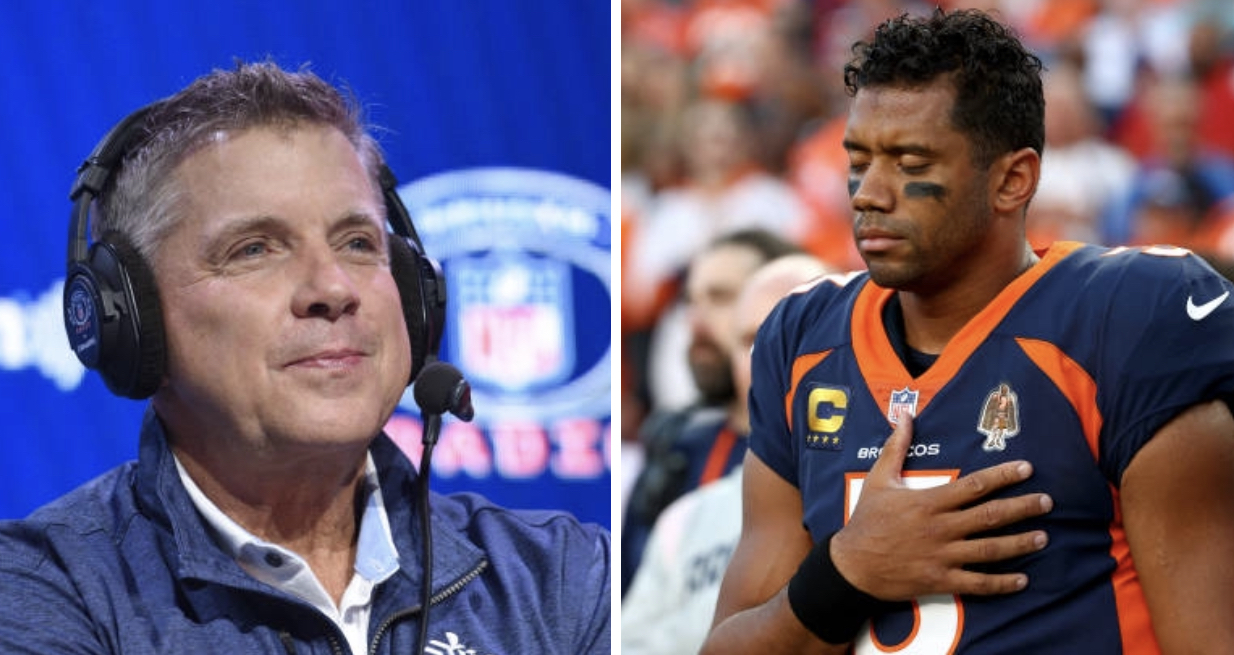They say some people are born into their destiny. They step into the world that their parents create and build their reality. For Demaryius Thomas, reality consisted of being born to a 15-year-old mother, and an absent father who joined the Army after high school and disappeared. Thomas’ early life was the stuff rappers rhyme about, while over-worked social workers go home and cry about. But he’s beat the odds.
Demaryius Thomas is starting as a wide receiver for the Denver Broncos vs. the Seattle Seahawks on Super Bowl Sunday. That in itself is a feat that millions have failed to accomplish.
The two-time Pro Bowl selection will likely line up across from Seattle Seahawks cornerback Richard Sherman in what has the potential to be a one-on-one matchup for the ages during Super Bowl XVLIII. Back-to-back seasons of over 1400 yards and double-digit touchdowns make him one of the most dangerous wide receivers in the NFL.
But Thomas isn’t much into self-promotion. Part of what makes him so exceptional is the obstacles that he’s had to overcome to make it to this point. Yes, we have all heard tales of professional athletes making it against all odds. But his story stands out among even those arduous tales of redemption. A 2010 story in the Denver Post highlighted that fact. It documented his visit to the Federal Correctional Institution, a low-security women’s prison in Tallahassee, Fla, to visit his mother and grandmother.
Both women were housed there after being convicted for trafficking cocaine back in 2000. Can you imagine the pain of witnessing familial matriarchs from two generations locked in the belly of the beast? When it comes to individuals who don’t make it, either in society or the NFL, people often point to specific environmental factors as a primary reason why some make it. Home training is a phrase that is often thrown around when black people don’t succeed. But it was clear early on that Thomas’ resolve was steely and determined.
His mother had been arrested numerous times on drug related charges since 1989 and would continue dealing in contraband every time she finished her bids. Prior to his prison visit, the last time Demaryius had seen his mother was the day his home was raided. She managed to convince the officers to allow her to prepare the children for school, feed, and see them off on the school bus. The officers complied.
"I mostly did it to make ends meet, to buy my kids what they wanted, so they could wear what the other kids were wearing, so I could keep my house nice on the inside," grandmother Minnie Thomas told the Denver Post.
"I knew my grandma was selling it and my mom was keeping some money," Thomas said. "I told my mother one time that they needed to stop because I had a dream that they got in trouble. I started crying like every night after then. And then it finally happened."
Grandmother Minnie was given two life sentences with the possibility of parole in 40 years because of prior drug convictions. Mother Katina Smith is scheduled to be released to a halfway house in 2017.
After the arrest of the two most important women in his life, and with his father still fulfilling an Army obligation at the time, it was decided by other family members that it would be best if he and his siblings remained stateside instead of sending them to be with their father .
Thomas went to live with relatives in Georgia while his father served the country, sending money and clothing when he could. Meanwhile, young Thomas and his sisters were being passed from the crowded home of one relative to another. Similar circumstances have caused many young black boys and girls to hit the streets at an early age. The difficulties were apparent. At first he lived with his paternal grandmother, then with his brother’s sister, before finally finding a permanent home with Uncle James and Aunt Shirley. His roots yearned to be planted in fertile soil. And that’s exactly what happened.
After finding a stable foundation to finally live life as a relatively care free child, Thomas began playing basketball and football while being reared in the Church. He worked in the field picking peas during the summer. Eventually he made his way to Georgia Tech University to an offense that really didn’t throw the ball that much.
At 6’3” and 225 he was already the size of a prototypical NFL wide receiver. Despite playing in an offense that ran the ball over 60 percent of the time, Thomas became all-Atlantic Coast Conference and left for the NFL after his junior year. He was drafted with the 22nd pick overall by the Denver Broncos.
Unbelievable stories of perseverance often stop when the protagonist reaches the Promised Land. But some cannot simply walk away from a broken home. The broken home follows them as if it had stilts and was wearing rollerblades.
In June 2012, Thomas discovered that a black man’s struggle to avoid the court system is easier said than done. He was sued in a sexual assault case involving then teammate Perrish Cox. A judge found Cox not guilty of two felony sexual assault charges, but the accuser filed a civil suit in March 2012 against Thomas and Cox. Thomas was considered a witness, however a Denver District Court judge dismissed all claims against Thomas.
To say the least, Demaryius Thomas has had more than a few excuses to fall back on throughout life. A broken home, and an early life in a high crime environment as a child was an excuse to be a criminal. Playing in a run-first offense in college could have easily been used as an excuse not to immediately excel as an NFL pass-catcher. Injuries to his Achilles was a tailor made excuse to not be a top five touchdown-catching receiver as well.
But when he takes the field on Super Bowl Sunday, billions of people will be watching. He most definitely will be on the biggest stage of his life. Some would say he has already overcome his most formidable opponents. Compton born, Stanford graduated Richard Sherman doesn’t have anything on the life Thomas has lived. But what both have in common is they’ve defied the odds, beat hood stereotypes, and made it from the bottom, straight to the top spot in in football.



